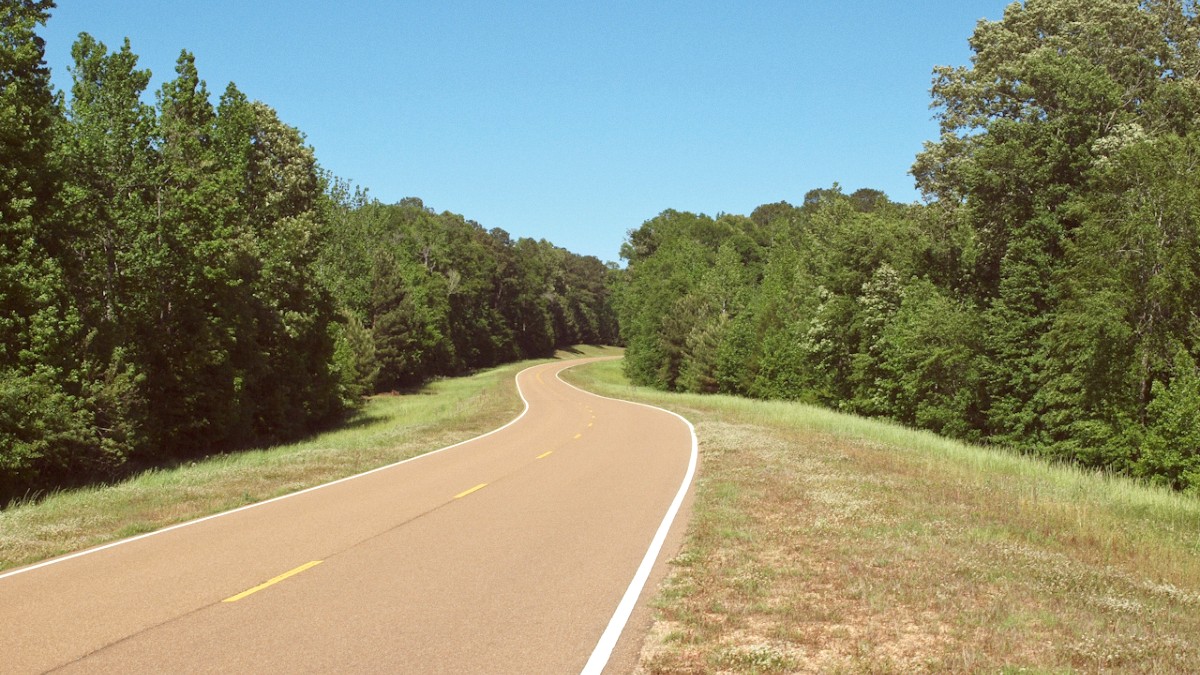
Mississippi, USA
The Natchez Trace Parkway stretches over 444 miles, passing through a humid subtropical climate zone. This indicates distinct seasons, each with different advantages for your visit.
Thunderstorms frequently occur in summer and might be severe. Check forecasts, especially for camping or cycling.
Tornado peak season occurs March-May and November-December. Monitor local weather advisories. Summer heat brings risks of heat exhaustion; stay hydrated.
Higher demand for accommodations, especially in popular towns like Natchez and Franklin.
Most comfortable weather, foliage in fall, blooming wildflowers in spring. Ideal for outdoor activities. Fewer insects.
Higher demand for accommodations, especially in popular towns like Natchez and Franklin.
Limited foliage, some smaller attractions may have reduced hours. Cold weather can occur, requiring warm clothing.
Fewer crowds, lower accommodation rates, crisp air, peaceful driving.
Limited foliage, some smaller attractions may have reduced hours. Cold weather might occur, needing warm clothing.
Extreme heat and humidity make extensive outdoor activities less comfortable. Frequent afternoon thunderstorms can disrupt plans.
Fewer crowds on the Parkway, lower accommodation rates, longer daylight hours for driving.
Extreme heat and humidity make extensive outdoor activities less comfortable. Frequent afternoon thunderstorms might disrupt plans.
Cycling and hiking are most comfortable in Spring and Fall, with ideal temperatures and scenic beauty.
Check forecasts, especially if planning to camp or cycle.
Monitor local weather advisories for any warnings.
Stay hydrated and limit strenuous activity during hot times.
Typically occurs from June to November.
The Natchez Trace Parkway is entirely within the United States. Your entry documentation depends on your nationality and departure location.
You need a valid state-issued driver's license or other government-issued photo identification, like a passport, for domestic air travel.
For international travelers, visa requirements and application processes depend on your country of origin.
The Natchez Trace Parkway suits various budgets. Prepare for varied expenses from camping to luxury stays.
The Natchez Trace Parkway offers options for various budgets, from budget-friendly camping and picnics to more luxurious historic inn stays and fine dining.
Choices range from free camping to luxury inns.
The Natchez Trace Parkway presents a safe and well-maintained travel experience. Travelers should still understand specific health and safety considerations.
Ticks, mosquitoes, and chiggers are common. Use Insect repellent, like Sawyer Picaridin.
Common along trails. Identify and avoid. Wear long clothing.
Risk in summer. Stay hydrated with water, limit strenuous activity during hot times, wear light clothing.
Sunburn: UV index might be high, especially in summer. Use Broad-spectrum sunscreen SPF 30+, like Neutrogena Ultra Sheer.
Emergency Dial: 911 for all emergencies (police, fire, ambulance). Healthcare Access: Hospitals, urgent care, pharmacies in larger towns. Rural Distances: Nearest facility might need a significant drive in rural sections. Drinking Water: Tap water in the U.S. is safe. Carry a Reusable water bottle, like a Hydro Flask. Food Hygiene: U.S. food safety standards are high. Eat at reputable establishments. Avoid Distracted Driving: Stay focused on the road.
The Parkway itself is safe, patrolled by National Park Rangers. In larger urban areas, exercise standard precautions.
Tornadoes peak in spring/late fall. Seek shelter indoors during severe thunderstorms.
Maintain safe distance. Never feed animals. Be aware of snakes, coyotes, and bears.
The Parkway is generally safe, but maintain city smarts in urban areas.
Stay informed on severe weather, especially tornadoes and thunderstorms.
Observe wildlife from a distance and do not feed animals.